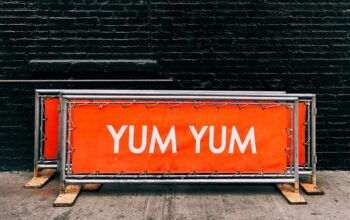As economies are subject to fluctuations, recessions have become a fact of life. In times of economic downturn, consumers’ purchasing power declines, leading to a drop in demand for goods and services. As a result, many
businesses struggle to survive during a recession, while some go out of business altogether. However, there are some businesses that are less affected by economic fluctuations and can continue to thrive even during a recession. These are known as recession-proof businesses, and they can be an attractive investment opportunity for those looking for stability and long-term growth, which can be started from the ground up or you can find routes for sale on sites like bizroutes.com, but lets dive more into this business model!
A recession-proof business is one that can maintain or increase its sales and profitability even during an economic downturn. These businesses typically provide goods and services that are considered essential, or at least highly
desirable, regardless of the economic climate. Examples of recession-proof businesses include healthcare, utilities, grocery stores, and discount retailers. These businesses are able to maintain steady demand even during a
recession because people will always need healthcare, electricity, food, and other necessities.
One recession-proof business that has become increasingly popular in recent years is the distribution business. It is a type of distribution business that involves delivering products to a set of established customers, often on a
regular schedule. Distribution routes typically involve delivering products like bread, milk, or snacks to retail stores, gas stations, and other businesses that sell these products to customers. Because these businesses sell essential
products, they are less affected by economic downturns, making distribution routes a recession-proof business opportunity.
Investing in an route business can be a smart move for those looking to start a recession-proof business. routes can provide a stable source of income and long-term growth potential, as they typically have established customer
bases and predictable revenue streams. Additionally, route businesses are relatively low-risk investments, as they typically have low overhead costs and do not require a large amount of startup capital.
To invest in an route business, there are several steps that need to be taken. First, it’s important to research the market and identify potential opportunities. This may involve identifying the types of products that are in
high demand in a particular area, as well as the retail stores and businesses that are in need of these products. It’s also important to assess the competition and determine whether there is room for a new route business
in the market.
Once potential opportunities have been identified, it’s important to create a business plan that outlines the goals and objectives of the delivery route business. This may involve determining the types of products that will be
delivered, the frequency of deliveries, and the pricing and marketing strategies that will be used. It’s also important to consider the logistics of the business, such as the vehicles and equipment that will be needed to make deliveries.
After the business plan has been created, it’s important to secure financing to start your dream route business. This may involve seeking loans from banks or other financial institutions, or raising capital through investors. It’s important to have a solid financial plan in place, including a detailed budget and cash flow projections, to ensure that the business is sustainable over the long term.
Here are some examples:
1. Snack delivery business:
A route business that specializes in delivering snacks and drinks to office buildings, schools, and other locations. This type of business would require a delivery vehicle and a route plan to
ensure efficient delivery.
2. Lawn care business:
A route business that provides lawn mowing, edging, and landscaping services to residential and commercial
properties. This type of business would require specialized equipment, such as lawnmowers and edgers, as well as a route plan to ensure timely service to clients.
3. Coffee delivery business:
A route business that delivers fresh coffee and other beverages to offices, restaurants, and other locations. This type of business would require a delivery vehicle and a route plan to ensure efficient delivery.
4. Cleaning business:
A route business that provides cleaning services to homes and businesses. This type of business would require a route plan to ensure timely service to clients, as well as specialized equipment and cleaning products.
5. Solar panel installation business:
A route business that specializes in installing solar panels for homes and businesses. This type of business
would require specialized equipment, such as scaffolding and solar panel installation tools, as well as a route plan to ensure timely service to clients across a region or state.
In conclusion, a recession-proof business is one that can withstand economic downturns and continue to thrive. investing in a route for sale is a prime example of a recession-proof business, as they provide essential products that
are in demand regardless of the economic climate. Investing in a delivery or distribution route business can be a smart move for those looking for stability and long-term growth potential. By conducting thorough market research,
creating a solid business plan, and securing financing, it’s possible to start a successful route business and take advantage of this recession-proof business opportunity.
Related Posts












